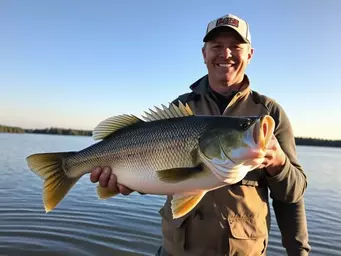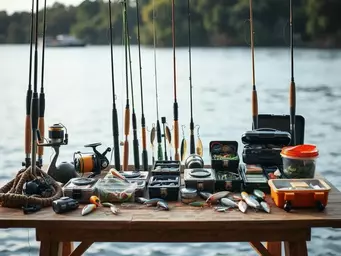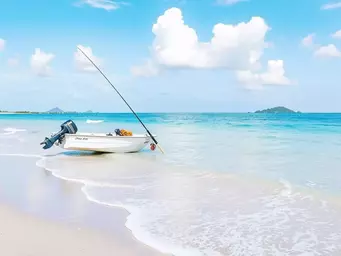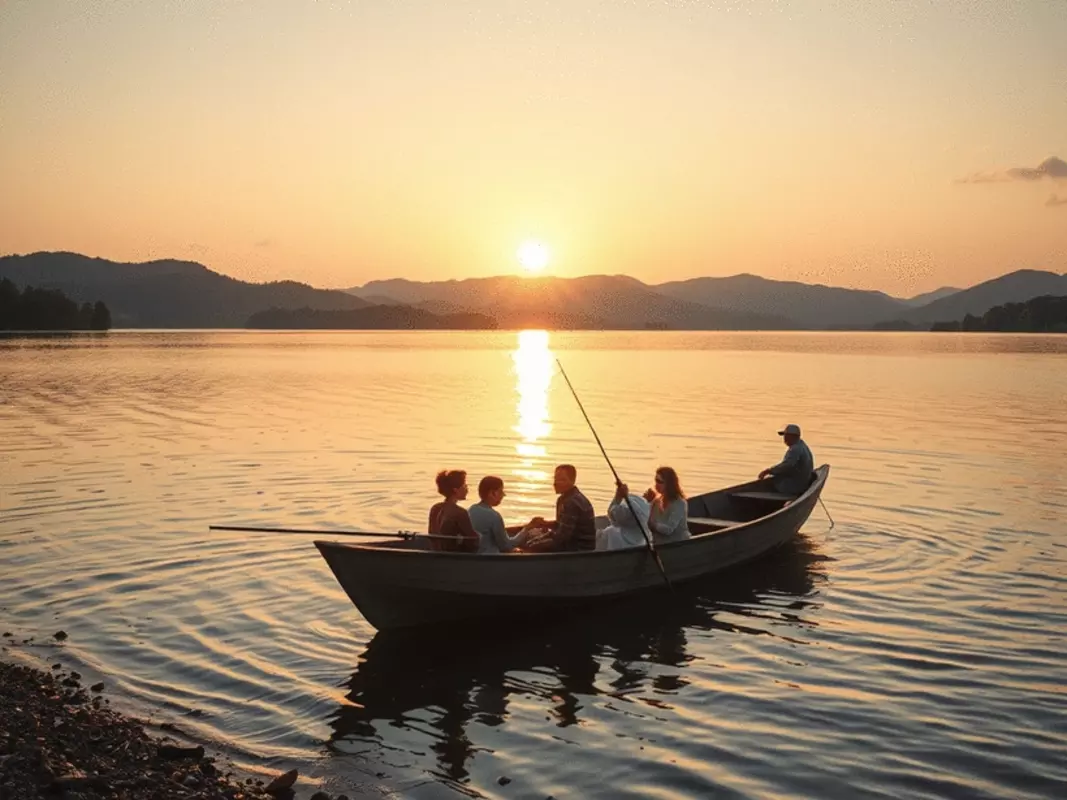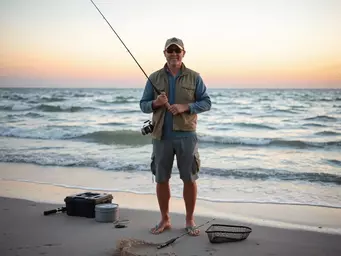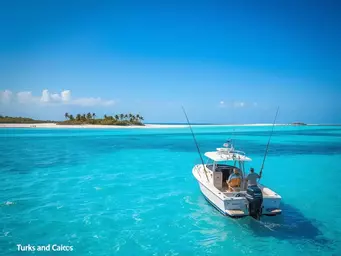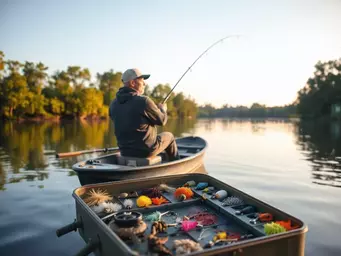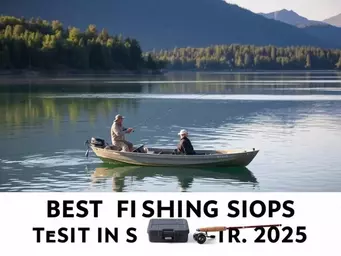Freshwater Fly Fishing for Beginners
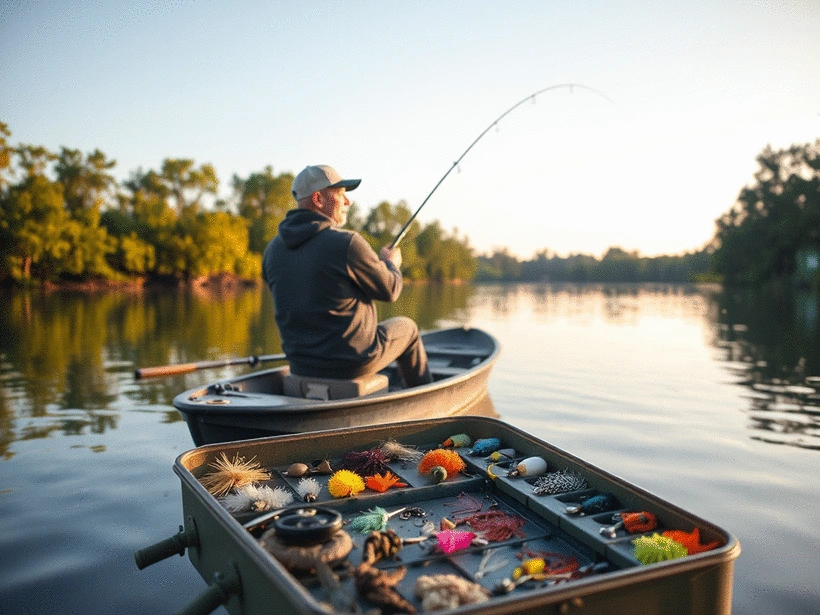
Ever wondered how a simple cast can transform into a thrilling adventure? Freshwater fly fishing offers not just a chance to catch fish, but a pathway to connect with nature and hone new skills. Let’s explore what you can gain from this captivating sport!
What You Will Learn
- The fundamental components of fly fishing, including rods, reels, and flies.
- Numerous benefits of fly fishing, such as physical activity and mental relaxation.
- Essential skills for beginners, including casting techniques and fly tying.
- The importance of guided lessons and local resources to enhance your fishing experience.
- How to integrate eco-conscious practices into your fly fishing routine.
- The impact of community engagement and connecting with other anglers.
Key Aspects of Fly Fishing for Beginners
Freshwater fly fishing involves several core components and provides numerous benefits. The diagram below highlights the essential gear and the advantages beginners can gain from this rewarding sport.
Understanding Freshwater Fly Fishing: A Beginner's Overview
Freshwater fly fishing is a captivating method of fishing that uses artificial flies to catch fish in freshwater bodies. Unlike traditional fishing, where bait is often used, fly fishing relies on the presentation of a lightweight fly that mimics natural insects or other prey. The beauty of this technique lies in its artistry and the connection it fosters between the angler and the water. As someone who has spent countless hours casting lines, I can say that there's an unexplainable thrill in watching a fish rise to your fly!
For beginners, it might feel overwhelming at first, but let me assure you that the learning curve is part of the fun! With a bit of practice, you’ll soon find yourself mastering the essential techniques. Whether you're fishing in a serene lake or a bubbling stream, the experience of fly fishing offers a unique opportunity to connect with nature while honing your skills.
What is Freshwater Fly Fishing?
At its core, freshwater fly fishing is about using a fly rod, reel, line, and flies to catch fish. The flies are specially designed lures made from materials like feathers, fur, and synthetic fibers. They’re crafted to resemble the insects that fish naturally eat. The art of casting these flies is what makes the sport so appealing! For a comprehensive guide on getting started, the U.S. Fish & Wildlife Service offers valuable insights for first-time anglers.
- Fly Rod: A specialized rod designed to cast lightweight flies.
- Fly Reel: A reel that holds the line and helps control the fish once it's hooked.
- Fly Line: A heavier line that allows for better casting of the lightweight flies.
- Flies: Hand-tied or store-bought lures that mimic insects.
Each component plays a vital role in your success as an angler. As you dive deeper into the world of freshwater fly fishing, you’ll appreciate the intricacies of each piece of gear!
The Benefits of Fly Fishing as a Beginner
Starting your journey in fly fishing has numerous benefits that go beyond simply catching fish. Here are some reasons why fly fishing might be the perfect fit for you:
- Physical Activity: Fly fishing involves a lot of casting, which is great exercise!
- Mental Relaxation: Spending time on the water is a fantastic way to reduce stress and enjoy nature.
- Skill Development: You'll develop a range of skills, from casting techniques to fly tying.
- Community Engagement: Fly fishing fosters a sense of community among anglers, where you can share tips and stories!
These benefits are just the tip of the iceberg! As you engage with this rewarding sport, you’ll find that every trip offers new challenges and experiences that enhance your passion for fishing.
Introduction to Fly Tying: Crafting Your Own Lures
One of the most exciting parts of fly fishing is the art of fly tying. This involves creating your own flies to use on the water, allowing for a personal touch on your fishing adventures. Fly tying is not only a practical skill, but it also taps into your creativity and understanding of fish behavior. Plus, it can be incredibly satisfying to catch a fish on a fly you crafted yourself! The Kentucky Department of Fish and Wildlife Resources provides excellent resources for those looking to learn to fly fish, including tips on fly tying.
To get started with fly tying, here are a few essential items you'll need:
- Vise: Holds the hook in place while you tie.
- Thread: Used to secure materials to the hook.
- Material: Feathers, fur, and synthetic fibers to create the fly.
- Scissors: For trimming excess materials.
Whether you're crafting a simple dry fly or an intricate nymph, fly tying is a rewarding aspect of the sport that enhances your overall fly fishing experience. So, gather your materials, and let your creativity flow!
Pro Tip
As you begin your journey in fly fishing, consider keeping a fishing journal. Documenting your experiences, including weather conditions, the types of flies used, and fish behavior, can significantly enhance your learning. Over time, you’ll be able to identify patterns and improve your techniques, making every trip more successful!
Getting Started: Your Next Steps in Freshwater Fly Fishing
As you embark on your freshwater fly fishing adventure, it's essential to set yourself up for success. One of the best ways to do that is by considering guided lessons or local resources. This step can provide invaluable knowledge tailored to your specific fishing environment, improving both your skills and confidence. With the right guidance, you'll quickly learn the ropes and avoid common pitfalls that many beginners encounter!
Many local fishing shops and organizations offer classes where you can learn directly from experienced anglers. These lessons not only cover the basics of casting and gear but also introduce you to the local fish species and their habitats. Have you thought about seeking a mentor? Connecting with a knowledgeable instructor can really enhance your learning experience!
Why Consider Guided Lessons or Local Resources?
- Personalized instruction based on your skill level.
- Access to local knowledge about the best fishing spots.
- Hands-on experience with immediate feedback.
- Opportunities to learn from seasoned anglers.
Taking guided lessons can significantly reduce the learning curve, allowing you to get on the water faster and more effectively. The connections you make with local resources can also provide ongoing support as you continue your fishing journey.
Joining a Community: Benefits of Connecting with Other Anglers
Joining a fly fishing community can be a game changer! Not only does it expand your network, but it also enriches your fishing experience. Being part of a group allows you to share tips, stories, and insights, creating a bond over your shared passion for fishing.
Communities often organize events, tournaments, and group outings, giving you the chance to learn in a supportive environment. Plus, it's a great way to make friends who appreciate the nuances of the sport just as much as you do! Have you considered participating in a local fishing group?
Finding Local Fishing Clubs and Schools for New Anglers
- Research local fishing clubs through social media platforms.
- Check with nearby tackle shops for flyers or bulletin boards.
- Attend local fishing expos or fairs to connect with clubs.
- Visit websites like Addict Fishing for resources and recommendations.
Finding a local fishing club or school can open doors to new friendships and learning opportunities. Connecting with others who share your enthusiasm for fishing can lead to invaluable experiences and memories on the water.
FAQ: Freshwater Fly Fishing for Beginners
What is freshwater fly fishing?
Freshwater fly fishing is a method of fishing that uses specialized lightweight artificial flies (lures made from feathers, fur, and synthetic fibers) to mimic natural insects and catch fish in freshwater bodies like rivers, lakes, and streams. It emphasizes the art of casting these flies.
What essential gear do I need for fly fishing?
You'll need a fly rod (designed for lightweight flies), a fly reel (to hold the line and control fish), a fly line (heavier for better casting), and various flies (lures mimicking insects).
What are the benefits of fly fishing for beginners?
Benefits include physical activity from casting, mental relaxation from being in nature, developing new skills like casting and fly tying, and community engagement with fellow anglers.
What is fly tying?
Fly tying is the art of crafting your own artificial flies using materials like feathers, fur, and synthetic fibers. It allows for a personal touch and a deeper understanding of fish behavior, and it requires tools like a vise, thread, materials, and scissors.
Why should I consider guided lessons?
Guided lessons offer personalized instruction, access to local knowledge about fishing spots and species, hands-on experience with immediate feedback, and the opportunity to learn from seasoned anglers, significantly shortening the learning curve.
How can I practice eco-conscious fly fishing?
Eco-conscious practices include using biodegradable lures, avoiding fishing during spawning seasons, minimizing your impact on habitats, practicing catch and release, educating others, and supporting sustainable businesses. The Texas Parks and Wildlife Department provides a helpful guide on keeping our waters clean.
Where can I find local fly fishing communities or schools?
You can find local clubs by searching social media, checking tackle shops for bulletin boards, attending fishing expos, or visiting specialized websites like Addict Fishing for recommendations.
Incorporating Eco-Conscious Practices into Your Fly Fishing
As anglers, we have a responsibility to protect the beautiful environments we enjoy. Understanding conservation is crucial for preserving fish habitats for future generations. At Addict Fishing, we believe in promoting sustainable practices that benefit both anglers and nature.
By integrating eco-conscious practices into your fly fishing routine, you can contribute to the health of our waterways and fish populations. Learning about the ecosystems you fish in is not only rewarding but also essential for being a responsible angler!
Understanding Conservation: Protecting Fish Habitats
- Minimize your impact by staying on designated paths.
- Keep fish habitats clean and free from litter.
- Practice catch and release to help maintain fish populations.
- Educate yourself about local species and their needs.
By understanding the importance of conservation, you can become a more informed angler. Your efforts in protecting fish habitats contribute to a healthier ecosystem for all who enjoy the great outdoors. I encourage you to think about how your actions can make a difference!
Eco-Friendly Fishing Practices for Beginners
Adopting eco-friendly fishing practices is easier than you might think! Here are some simple ways to ensure that your fishing habits are sustainable:
- Use biodegradable lures and tackle when possible.
- Avoid fishing during spawning seasons to protect fish populations.
- Educate fellow anglers about respectful fishing practices.
- Support businesses that prioritize sustainability in their operations.
By adopting these practices, not only will you enhance your fishing experience, but you'll also contribute to a greater cause—keeping our waters clean and thriving for wildlife.
Ethical Fishing: Understanding Angler Ethics and Regulations
As you venture into the world of fly fishing, familiarize yourself with the ethical guidelines and regulations in your area. Respecting these standards is vital for maintaining the integrity of the sport and ensuring sustainable fish populations.
Each location has its own set of rules, including size limits, catch limits, and specific seasons for fishing various species. Always do your research before heading out and consider how your actions impact the environment. Are you aware of the local regulations? It’s always best to be informed!
Final Thoughts: Embracing the Fly Fishing Journey
As you continue your journey in the captivating world of fly fishing, remember that growth comes from practice and persistence. Embrace every moment on the water, and don't hesitate to try new techniques and approaches. Each time you cast your line, you're not just fishing—you're part of a larger community dedicated to this timeless pursuit.
So, take a deep breath, relax, and enjoy the experience! There's so much to learn and discover, and I can’t wait to hear about your adventures. Have you found your passion for fly fishing? Let's continue to explore this fascinating world together!
Call to Action: Resources for Further Learning and Exploration
As you dive deeper into fly fishing, check out the resources available at Addict Fishing. From expert tutorials to destination guides, we provide a wealth of information to help you navigate your journey. Dive into our articles, and don’t hesitate to reach out with questions or for advice!
Additionally, share your experiences in the comments below. What have you learned on your fishing adventures? Together, we can foster a supportive community of anglers who uplift one another!
The Impact of Fly Fishing on Local Ecosystems and Conservation
Fly fishing isn't just about the thrill of the catch; it's about appreciating and protecting the natural world around us. Each fishing trip serves as a reminder of the interconnectedness of ecosystems and the importance of maintaining balance.
By engaging in ethical and eco-conscious practices, we can ensure that future generations of anglers will have access to the same beautiful waters we cherish today. Let's work together to make a positive impact on our environment, one cast at a time!
Recap of Key Points
- Freshwater fly fishing uses lightweight artificial flies to catch fish, requiring specific gear like a fly rod, reel, line, and flies.
- Benefits of fly fishing include physical activity, mental relaxation, skill development, and community engagement.
- Fly tying allows anglers to create their own lures, enhancing both creativity and understanding of fish behavior.
- Consider taking guided lessons to gain personalized instruction and local knowledge, which can significantly shorten the learning curve.
- Joining a fly fishing community offers support, shared experiences, and opportunities for learning through group activities.
- Eco-conscious practices are essential in preserving fish habitats, including minimizing impact, practicing catch and release, and supporting sustainable businesses.
- Understanding local fishing regulations is crucial for ethical fishing and maintaining sustainable fish populations.
